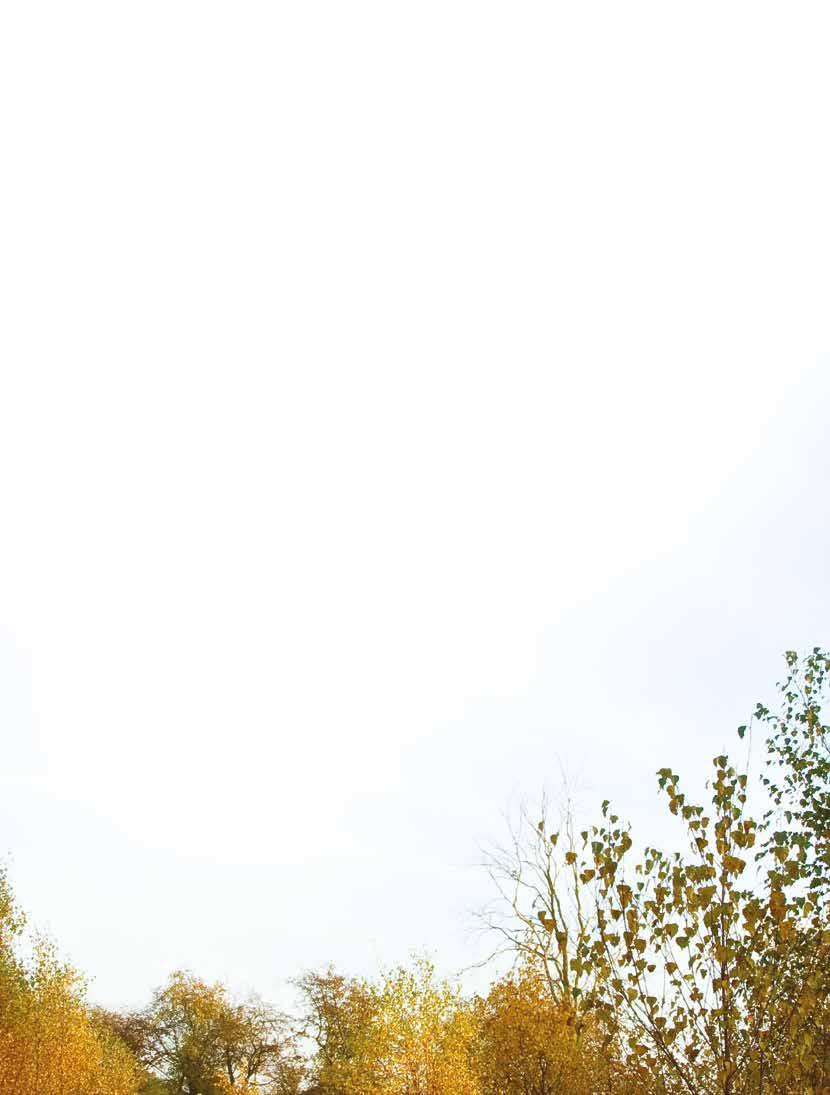
3 minute read
Making green greener
How is Durham Wildlife Trust addressing its carbon footprint?
Zoe Hull
Advertisement
Head of Operations and Development
As Head of Operations and Development, it is my job to make sure that Durham Wildlife Trust is the most efficient organisation that it can be. Obviously, our commitment to reversing the ecological crisis is clear, and many of the things we do work towards addressing this. But what about the climate emergency – and whether doing our part to address that will also make us a more efficient organisation that can do more for wildlife? The climate and ecological emergencies are obviously closely linked, but the solutions can sometimes look very different. Addressing climate change can feel like a huge and daunting job, so Durham Wildlife Trust needed a plan as to how we were going to play our part.
Crunching the numbers
First of all, data is the key. Our initial step was to gather information on where we are now, in order to work out where we could make most improvements. Funding from the People’s Postcode Lottery, via The Wildlife Trusts nationally, enabled the Trust to enlist the services of Genee¹ to help us with data collection and collation. This data has also contributed to the national Wildlife Trusts carbon footprinting exercise. The Trust is also part of the North East Climate Coalition and VONNE² Climate Action Alliance, which has been a brilliant support in helping organisations like ours to get our house in order. Through this, we are also able to share our journey with other voluntary and community organisations and contribute towards a toolkit and supportive networking sessions. To get started, we collated all our internal data for staff and volunteer mileage and commutes; numbers of grazing animals; electricity and water use; fuel consumption for trust vehicles and equipment; and consumption of office supplies. This is known as Scope 1 and 2 carbon data. We did this for 2019/20, and we are in the process of repeating the exercise for 2020/21. The comparison will be interesting with fewer miles travelled and offices closed due to Covid lockdowns. But this comes with its own challenges too – how do we take account of home working in our carbon calculations?
Easy wins, challenges and next steps
A quick and easy change for us was moving to 100% renewable energy and replacing all our bulbs with LEDs. More challenging things are our heating systems in the offices. At both Rainton Meadows (electric storage heaters) and Low Barns (oil fired boiler), the systems are outdated but very expensive to replace, so any investments need to be made carefully to ensure they deliver savings and reduce our carbon footprint. With the data gathered, we are working alongside the experts at Genee to produce a carbon reduction strategy and action plan to look at practical changes we can make. Some will be straightforward to implement, but others will require real cultural change across the Trust, so will take longer to implement and will probably be harder to measure. We will also need to consider the carbon impact of our nature reserves. Some may sequester carbon over the long term, but doing major works on them - for instance excavation to create wetland habitats - might have a negative carbon impact in the short term. But this isn’t a quick-fix project. We are taking our time and doing things properly because we want to make permanent and sustainable change. In order to make our limited funds work for us in the most effective way, it is important to think longer term; for instance, reducing our energy consumption permanently, not simply moving tariff. The Trust will keep you updated on our plan of action and progress, in the hope that by sharing our experience you can take something from it and make some positive changes at home or work.
1. Genee is a not for profit environmental consultancy which was established by the North East England Nature Partnership. 2. VONNE is the regional support body for the North
East Voluntary, Community and Social Enterprise (VCSE) sector









